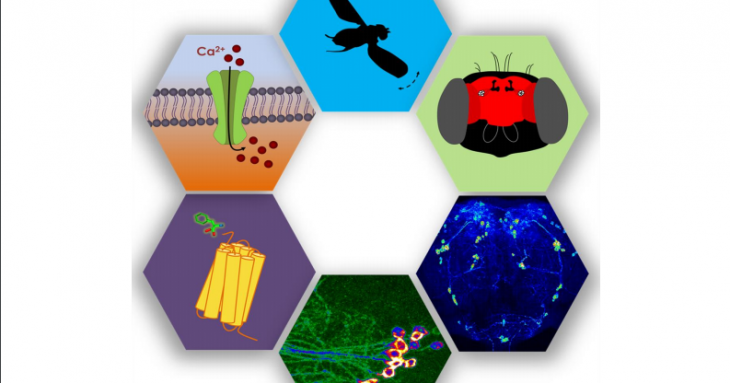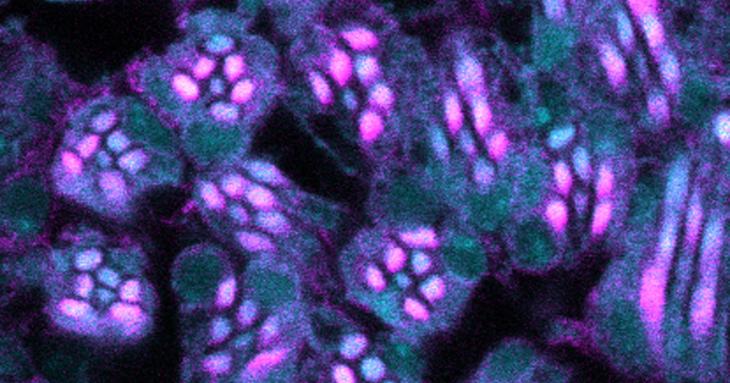-
To divide or not to divide? That is the question.
Scientists have long wondered and studied how and when the cell multiplies itself, and how cells change over time. In this context, understanding how and when cells multiply is very important.
All living cells undergo the same cell division cycle - irrespective of whether they are fly cells or mouse cells. To be effective building blocks, cells must make critical decisions to divide or not. At the level of an organism, these decisions are at the population level, and specific tasks to individuals – like a division of labour, occur in order for the system to function well.
-
NCBS Students Grab Three Awards at SPEEC-UP 2018
31st August 2018 saw the second iteration of Student Presentations on Ecology, Environment & Conservation—or SPEEC-UP as it is aptly named—one-day conference with three-minute talks by budding young scientists.
-
What’s all the ‘excitement’ about flight?
Have you ever wondered how tirelessly the tiny fruit fly buzzes around your fruit bowl? This behavior not only demands tremendous energy but also requires highly coordinated neuronal signaling that enables continuous flight. A recent study from Prof. Gaiti Hasan’s lab has uncovered molecules required in the fruit flies brain that enables flight for long periods of time and helps them locate the fruit bowl in your pantry.
-
Nutrients of neuroscience
Sumantra Chattarji, professor of neurobiology at the National Centre for Biological Sciences (NCBS), Bengaluru, says, “Even a month of social interactions, playtime, exercise, and sensory stimulation can make a two-month-old rat a better learner.” Other studies by Chattarji and his team of researchers have found that if these young rats are stressed for ten days, they lose those connections in the hippocampus.
-
Looks can be deceiving: The topsy-turvy case of Hemidactylus triedrus, the termite hill geckos
A team of researchers from the National Centre for Biological Sciences (NCBS), Bengaluru, Fergusson College, Pune and Veer Narmad South Gujarat University, Gujarat, have unravelled the taxonomy of Hemidactylus triedrus, a gekkonid lizard belonging to the g
-
A molecular pit crew responsible for refuelling in signalling cells
Raghu Padinjat’s group from the National Centre for Biological Sciences (NCBS), Bangalore
-
Researchers discover 2 new cicada species from the Western Ghats
"A team of researchers, including Kiran Marathe and Krushnamegh Kunte from National Centre for Biological Sciences, and Allen F Sanborn from Department of Biology, Barry University, Florida, have collaborated to describe two new species of cicadas as well as sorted out the taxonomic problem related to the cicada genus Rustia."
-
Researchers find new cicada insect species in Verlem
A new cicada insect species, named ‘Rustia minuta’ recently discovered in the Western Ghats by Kiran Marath of NCBS, and colle
-
Traditional knowledge of a northeast community holds answers to the misunderstood practice of shifting cultivation
- A recent study documents a relatively r














